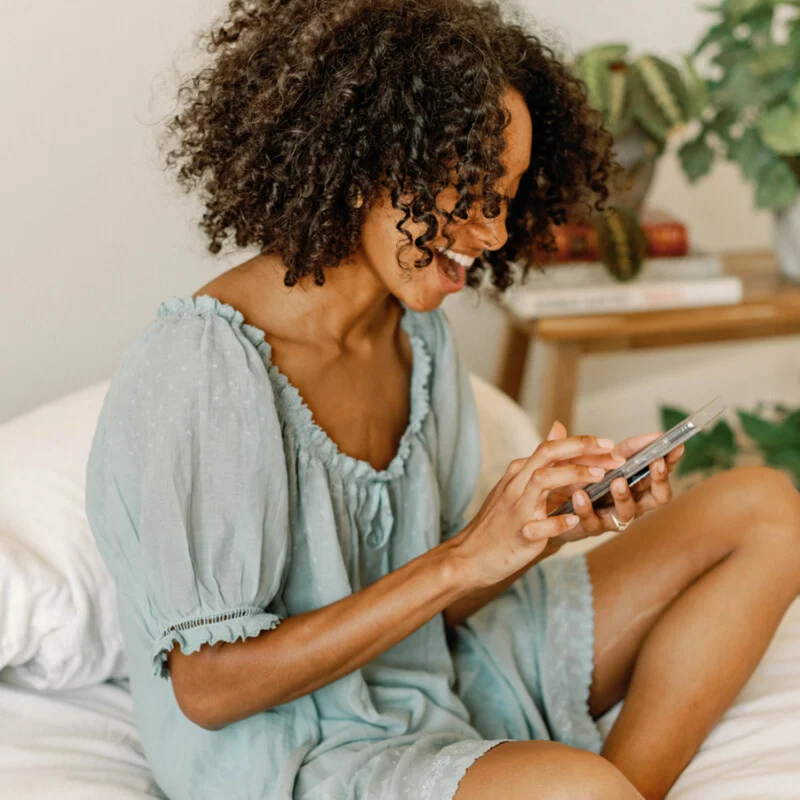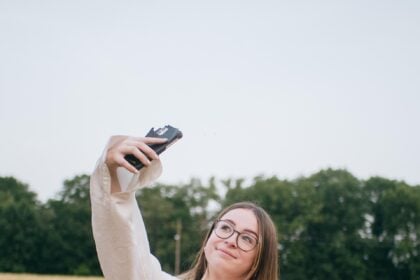The Digital Detox Challenge: Unplugging Is the New Glow-Up
Can you go one full day without Instagram, texts, or doomscrolling until 2 a.m.? Welcome to the Digital Detox Challenge — where mental clarity is the new flex.
The Digital Detox Era: Where Offline Is the Ultimate Status Symbol
Once upon a time, flexing online meant being online 24/7. Now? It’s about logging off. From “quiet luxury” to “quiet minds,” unplugging has become the latest status upgrade — and not just among your over-it millennial friend group.
The #DigitalDetox trend is everywhere — on TikTok, Reddit, and even making rounds on X (formerly Twitter). It’s not about deleting every app forever. It’s about reclaiming your focus, energy, and sanity — one screenless hour at a time.
Why Everyone’s Suddenly Logging Off (On Purpose)
We’re not just talking “put your phone down” pep talks. This movement is turning into a cultural wave, driven by:
- Burnout from 8 hours of screen time a day
- Digital clutter fatigue (How many notifications did you ignore today?)
- The craving for mental peace that your For You Page just isn’t delivering anymore
According to a 2024 study from the American Psychological Association, over 58% of Gen Z reported daily screen-related stress. Add the pressure of hyper-connectivity, and you get a collective cry for help — answered by a trend that dares you to unplug.
🔗 Read more: Gen Z Demands: Salary Transparency or No Deal
TikTok’s 48-Hour No-Screen Challenge
TikTok is both the problem and the cure. That’s poetic, right?
One of the most viral trends in April 2025? A 48-hour no-phone challenge, where users ditch their devices, record their experience (after the fact), and show how they filled the void:
- Baking banana bread (of course)
- Reorganizing their closets like it’s a life mission
- Actually reading a book
- Journaling like it’s 2002
@themiagabriella blew up with her post-detox glow:
“Y’all I slept 9 hours. My skin is clear. I forgot my ex even existed.”
The video now has over 4.2M views — and counting.
Reddit’s Detox Diaries: Real, Raw, and Surprisingly Funny
Over on r/digitaldetox, the vibe is less influencer-core and more “I just want to hear myself think again.”
One user shared:
“Went a week without my phone. Day 1 was panic. Day 7? Peaceful silence and way fewer impulse Amazon buys.”
Another posted their “Detox Bingo Card,” with squares like:
- “Forgot what day it is”
- “Felt sunlight on skin”
- “Realized I never liked Twitter anyway”
The community swaps genuinely helpful tips: like turning your screen grayscale (so your apps stop looking like candy), using a lockbox for your phone, or scheduling “scroll windows.”
Celebrities Are Doing It Too — But With Dumb Phones
When Ed Sheeran revealed he ditched his smartphone for a “dumb phone,” fans applauded. Same for Justin Bieber, who said his flip phone helped him slow down and reconnect.
🔗 External read: Wired – The Rich Are Buying Their Way Out of Tech
Luxury detox retreats are now a thing. We’re talking no-WiFi cabins in Colorado, silent spas in Bali, and even “no-phone zones” at tech conferences. Apparently, nothing says successful like escaping your inbox.
The Benefits Are More Than Just Aesthetic
Digital detoxing isn’t just an aesthetic trend — it has real impact.
According to VeryWell Mind, taking intentional breaks from digital devices can:
- Improve sleep
- Lower anxiety
- Boost creativity
- Enhance in-person relationships
- Reduce FOMO (finally)
Even doing something as simple as a Sunday Social Cleanse — where you stay off social media one day a week — can reset your brain like a mini vacation.
💬 X user @techdetoxbae:
“I deleted TikTok for a week. My screen time dropped by 43%, and I swear I dreamed for the first time in months.”
How to Start Your Own Detox (Without Going Full Hermit)
Unplugging sounds dreamy — but where do you even start? Here’s a beginner-friendly guide:
Step 1: Define the “Why”
Do you want to sleep better? Be less distracted at work? Stop checking your ex’s stories?
Step 2: Pick a Time Window
Try:
- 1-hour blocks during dinner
- No social media after 8 p.m.
- 24-hour “digital sabbaths” on weekends
Step 3: Prep Like a Pro
- Tell your friends (so they don’t call the cops when you go MIA)
- Set up auto-responders
- Download a meditation app before you log off (yes, the irony)
Step 4: Fill the Space
Detoxing doesn’t mean staring at a wall. Try:
- Journaling
- Taking walks with no AirPods
- Making real phone calls
- Visiting BigTrending.com for offline ideas that don’t suck
Is Unplugging the New Social Flex?
Honestly? Yes.
In a world where everyone’s “always online,” choosing to go offline — even temporarily — is bold. It’s intentional. It’s hot. And it says: I care about my peace more than my feed.
🔗 Also read: Big Brother in the Office: The Rise of Employee Surveillance
Digital detoxing might not fix everything. But if it helps you feel more you, then maybe it’s not just a challenge — it’s a lifestyle shift.
FAQ
Q: What is the Digital Detox Challenge, exactly?
A: It’s a self-imposed break from screens, social media, and devices to reset your brain and reclaim focus. Think of it as soul-care, not just self-care.
Q: How long should a detox last?
A: Whatever you can handle. Start with a few hours. Level up to 24-48 hours. Some go weeks — just don’t ghost your boss.
Q: What if I need tech for work?
A: Totally fair. The detox is about boundaries, not quitting your job. Try “tech curfews” or offline breaks outside of work hours.
Q: Will I actually feel better?
A: Most people report better sleep, less anxiety, and more clarity — even after short breaks. The glow-up is internal (but yes, your skin might thank you too).









